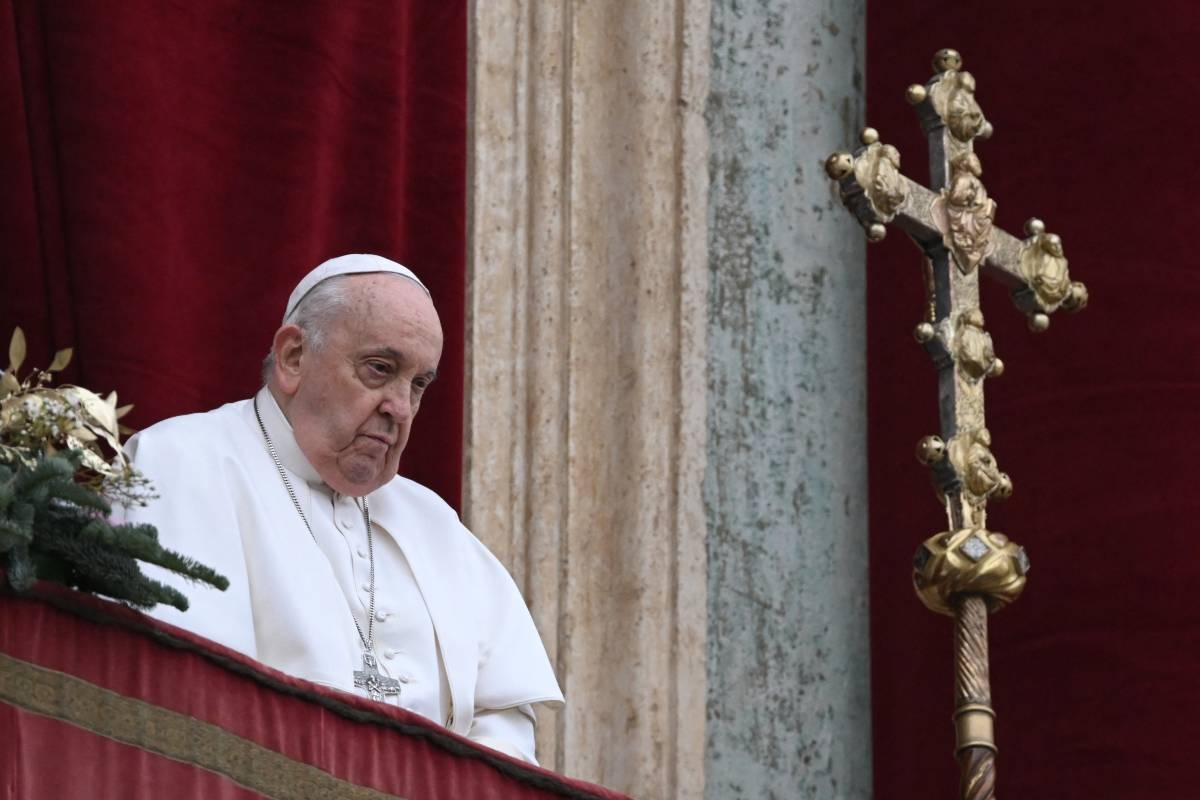In his Christmas message, Pope Francis expressed his deep concern for the desperate humanitarian situation in Gaza and called for an immediate ceasefire and the release of hostages. Speaking to thousands of faithful gathered at Saint Peter’s Square in the Vatican, the Pope deplored the abominable attack that took place on October 7 and urged the liberation of those still being held captive.
The war between Israel and Hamas has resulted in a catastrophic humanitarian crisis in the Gaza Strip, with the United Nations reporting that 85 percent of the population has been displaced. The conflict began when Hamas gunmen breached Gaza’s militarized border, resulting in the deaths of approximately 1,140 people in Israel, mostly civilians. Palestinian militants also abducted around 250 people, with 129 still being held in Gaza.
Israel responded to the attacks by launching a relentless bombardment and ground invasion of Gaza, resulting in the deaths of over 20,000 people, predominantly women and children, according to the latest toll from the territory’s Hamas-run health ministry. The situation is further exacerbated by Israel’s control over access to Gaza, with aid trickling in from Egypt. Although Israel recently approved the delivery of aid through its Kerem Shalom crossing, it remains insufficient to meet the needs of the devastated territory.
Pope Francis called for an end to the military operations and a solution to the desperate humanitarian situation through the provision of humanitarian aid. He also emphasized the need for sincere and persevering dialogue between the parties involved in the Israeli-Palestinian conflict, supported by strong political will and the international community.
In his Christmas Eve message, the Pope reiterated his call for peace in the Holy Land, expressing his sorrow that the Prince of Peace continues to be rejected by the futile logic of war. He extended his prayers for political and social stability in Syria, Lebanon, Yemen, and Ukraine. Notably, Pope Francis acknowledged Ukraine’s decision to celebrate Christmas on December 25, deviating from the traditional Orthodox date of January 7 celebrated in Russia.
The pontiff also urged peace between Armenia and Azerbaijan, who have been embroiled in a territorial conflict for decades. He emphasized the importance of humanitarian initiatives, the return of refugees to their homes, and mutual respect for religious traditions and places of worship in resolving the conflict.
Addressing conflicts in the Sahel region, the Horn of Africa, Sudan, Cameroon, the Democratic Republic of the Congo, South Sudan, and tensions on the Korean peninsula, Pope Francis called for dialogue, reconciliation, and the pursuit of lasting peace. He concluded his message by urging people of goodwill in the Americas to find suitable ways to resolve social and political conflicts and combat poverty.
Pope Francis’ Christmas message serves as a powerful reminder of the urgent need for peace, dialogue, and humanitarian aid in Gaza and other conflict-ridden regions around the world. His words resonate with the international community, emphasizing the importance of empathy, compassion, and collective action in addressing the suffering of innocent civilians caught in the midst of conflicts.







